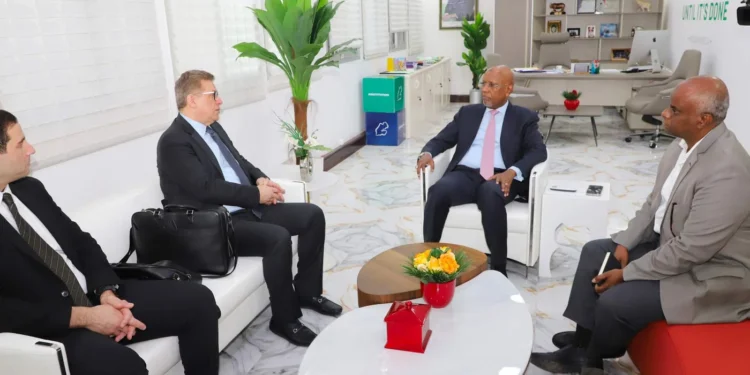Djibouti is making steady progress in implementing public policies aimed at improving the well-being of its population, following the renewal of its partnership with the African Development Bank (AfDB). During an official mission held from April 4 to 11 and led by Dr. Khaled Sherif, AfDB Executive Director for Egypt and Djibouti, key strategies were discussed to address the country’s social and economic needs.
The government, represented by Prime Minister Abdoulkader Kamil Mohamed, presented an agenda focused on essential services: the construction of safe roads, accessible hospitals, potable water wells, and improvements to rural education systems. “Our priority is to ensure that development is not a privilege of urban areas, but a right for all citizens,” stated the Prime Minister, highlighting the equitable approach of the national strategy.
DRC: Health coverage advances with WHO support
In a meeting with the Minister of Economy and Finance, Ilyas Moussa Dawaleh, the government emphasized that infrastructure investments aim to improve everyday life—enhancing mobility, access to quality healthcare, and education for children across the country. These projects also aim to foster territorial cohesion and curb internal migration driven by lack of opportunities.
The AfDB praised Djibouti’s commitment to a people-centered development model and acknowledged progress in key projects such as the Doraleh Port and the free trade zones. Dr. Sherif reaffirmed the Bank’s support for policies that promote social inclusion, territorial equity, and improved public services. He stressed that transparency and rigorous project monitoring are essential for efficient resource management.
The mission also included meetings with key institutions such as the University of Djibouti and the Social Development Agency, where collaboration opportunities were explored to enhance educational offerings, support vulnerable groups, and increase community participation in policy planning.
Looking ahead to the 60th AfDB Annual Meetings in Abidjan, Djibouti reaffirms its commitment to people-centered governance—where equitable access to services and opportunities drives a fair and sustainable development agenda.









